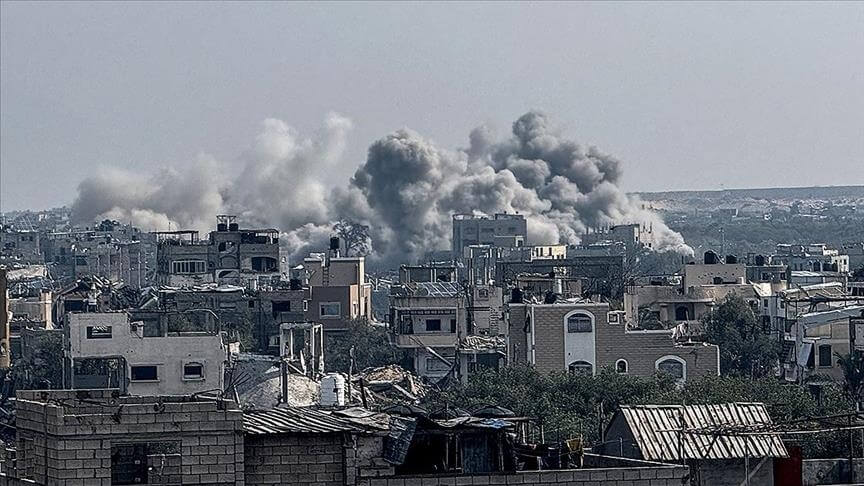Israeli Defense Minister Israel Katz announced an escalation of military operations in Gaza on Wednesday, detailing plans to seize large areas of land that will be integrated into Israel’s “security zones.”
The operation includes a large-scale evacuation of civilians from conflict zones in Gaza, although Katz did not specify how this evacuation would be implemented. “The military operation will expand to eliminate terrorists and their infrastructure while incorporating significant areas into Israel’s security zone,” Katz stated.
As part of this expanded operation, the Israeli military has ordered residents in the Rafah area of southern Gaza to evacuate northward. This announcement comes amid intensified Israeli airstrikes following the collapse of a ceasefire with Hamas two weeks ago.
Medical officials from Nasser Hospital and the European Hospital in Khan Younis reported that at least 17 people were killed in overnight airstrikes in southern Gaza, with 13 of the deceased—women and children—sheltering in a residential building after being displaced from Rafah.
Israeli military planners are reportedly preparing for a large-scale ground offensive in Gaza, potentially involving tens of thousands of troops. While Katz’s statement did not confirm additional troop deployments, military sources have indicated that Israel is contemplating a long-term presence in certain parts of Gaza.
Lt. Gen. Eyal Zamir, Israel’s newly appointed chief of staff, is at the forefront of military strategies that could lead to an extended occupation of Gaza, raising concerns about the potential for prolonged insurgencies.
However, there is significant resistance to a broader offensive within Israel. Public opinion has begun to shift toward prioritizing a hostage release agreement rather than escalating military action. Families of Israeli hostages have expressed outrage over the ongoing military expansion. “Instead of securing the release of the hostages through an agreement and ending the war, the Israeli government is sending more soldiers into Gaza to fight in the same places they have fought time and again,” the hostage families’ forum stated.
They have called on Prime Minister Benjamin Netanyahu, Defense Minister Katz, and military leaders to publicly justify how the expanded operation aligns with their goal of bringing the remaining hostages home.
Despite these military escalations, diplomatic efforts to restore a ceasefire are still underway. Egypt and Qatar have intensified their negotiations between Israel and Hamas.
Hamas has reportedly accepted a new Egyptian proposal that would involve the release of five hostages, including American-Israeli Edan Alexander, in exchange for a renewed ceasefire. Israel has responded with a counterproposal, but details are still unclear.
The success of these negotiations may determine whether the conflict escalates further or moves toward de-escalation. For the time being, Israel’s military operations in Gaza continue, raising concerns about increased displacement, civilian casualties, and the long-term ramifications of the ongoing conflict.

